
Facts About Olives
It’s not surprising that olives have documented health benefits that extend to most of our body systems. Olive benefits have been demonstrated for the cardiovascular system, respiratory system, nervous system, musculoskeletal system, immune system, inflammatory system, and digestive system. We believe that many of these diverse systems benefits are actually related to two underlying health-support aspects of olives, namely, their unusual antioxidant and anti-inflammatory nutrients.
Here are some interesting olive health facts:
- Olives eliminate excess cholesterol in the blood.
- Olives control blood pressure. The oleic acid found in olives—once absorbed up into the body and transported to our cells—can change signaling patterns at a cell membrane level (specifically, altering G-protein associated cascades). These changes at a cell membrane level result in decreased blood pressure.
- Olives are a source of dietary fibre as an alternative to fruits and vegetables.
- Olives are a great source of Vitamin E.
- Olives act as an antioxidant, protecting cells.
- Olives reduce the effects of degenerative diseases like Alzheimer’s, benign and malignant tumours, including less serious varicose veins and cavities.
- Olives help prevent blood clots that could lead to a myocardial infarction or deep vein thrombosis (DVT).
- Olives protect cell membranes against diseases like cancer. Hydroxytyrosol, an olive phytonutrient that has long been linked to cancer prevention, is now regarded as having the potential to help us prevent bone loss as well. Several recent laboratory animal studies have found increased depositing of calcium in bone and decreased loss of total bone mass following consumption of this olive phytonutrient.
- Olive extracts have now been shown to function as anti-histamines at a cellular level. By blocking special histamine receptors (called H1 receptors), unique components in olive extracts may help to lessen a cell’s histamine response. Because histamine is a molecule that can get overproduced in allergy-related conditions and can be a key player in the inflammatory process, it’s likely that the anti-inflammatory benefits we get from olives involve this anti-histamine pathway. It’s also possible that olives may have a special role to play as part of an overall anti-allergenic diet.
- Olives are a great protection against anaemia.
- Olives enhances fertility and reproductive system.
- Olives play an important role in maintaining a healthy immune system, especially during oxidative stress and chronic viral diseases.
- Olives are a natural aphrodisiac.
- Olives are nutritious and rich in mineral content as sodium, potassium, magnesium, iron, phosphorus and iodine.
- Olives provide essential vitamins and amino acids.
- Olives contain oleic acid, which has beneficial properties to protect the heart. The high monounsaturated fat content of olives has been associated with reduced risk of cardiovascular disease. When diets low in monounsaturated fat are altered to increase the monounsaturated fat content (without becoming too high in total fat), research study participants typically experience a decrease in their blood cholesterol, LDL cholesterol, and LDL:HDL ratio. All of these changes lower our risk of heart disease.
- Olives contain polyphenols, a natural chemical that reduce oxidative stress in the brain. So by eating a daily serving of olives helps improve your memory by up to 25%.
- Just one cup of olives is a great source of iron – 4.4mg.
- Eating olives can improve the appearance of wrinkles by 20% since they contain oleic acid, which keeps skin soft and healthy.
- By eating just 10 olives before a meal, you can reduce your appetite by up to 20%. This is because the monounsaturated fatty acids contained in olives slow down the digestion process and stimulate the hormone cholecystokinin, a hormone that sends messages of fullness to the brain.
- Not only does it do that, but it also helps your body to stimulate the production of adiponectin, a chemical that burns fat for up to five hours after ingestion.
Olives are a good source of several vitamins and minerals, some of which are added during processing.
- Vitamin E: High-fat plant foods usually contain the highest amounts of this powerful antioxidant.
- Iron: Black olives are a good source of iron, which is important for the transport of oxygen in red bloaod cells
- Copper: This essential mineral is often lacking in the typical western diet. Copper deficiency may increase the risk of heart disease
- Calcium: The most abundant mineral in the body. It is essential for bone, muscle and nerve function
- Sodium: Most olives contain a high amount of sodium since they are packaged in brine or saltwater.
When you buy cheap or canned olives, you should be aware of what chemicals are used to process them. In 1910, discovery of a method of canning black olives made commercial processing possible. Until that time, processing had been unsuccessful because the olives tended to discolor. The canning method consists of air ripening or lye-curing green olives in an oxygenated solution until they turn black, and treating them with ferrous gluconate. The iron additive fixes the black color, but the whole process removes most of the nutritional value of the olive. The olives are then packed in mild brine and processed in canners using pressure and heat.
Handling of Lye: (Caustic soda, sodium hydroxide). Lye is a dangerous chemical and must be handled carefully as it can cause severe burns to the skin and even blindness if splashed into the eyes (and perhaps death if ingested). Eye protection and protective clothing and gloves are essential.When lye treating olives, maintain a large open container of dilute household vinegar (about 25% vinegar: 75% water) on hand for neutralising and rinsing off any lye that may splash onto exposed skin.
Yeasts and moulds have been found to occur in higher numbers in olives that have undergone an initial lye treatment. The removal of the naturally occurring phenols and polyphenols from the olives by the lye reduces the natural inhibiting factors that resist the growth of yeast and moulds.
Sources:
https://www.betterhealth.vic.gov.au/health/healthyliving/olive-oil
https://authoritynutrition.com/foods/olives/
http://www.health24.com
http://www.whfoods.com
http://www.australianolives.com.au/assets/files/pdfs/aoa-forms/Food_Safety_Requirements_for_Table_olives_&__Infused_olive_oil_-_AUG_07.pdf
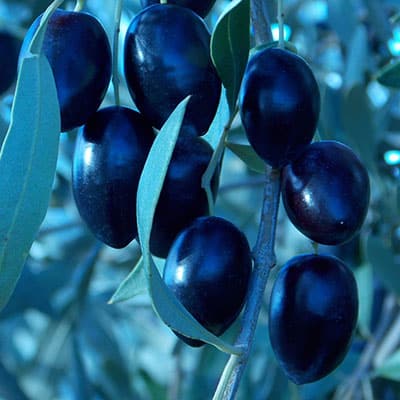
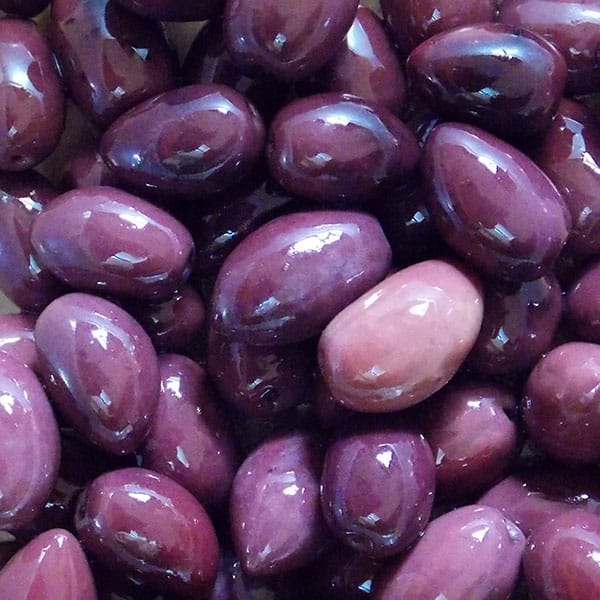
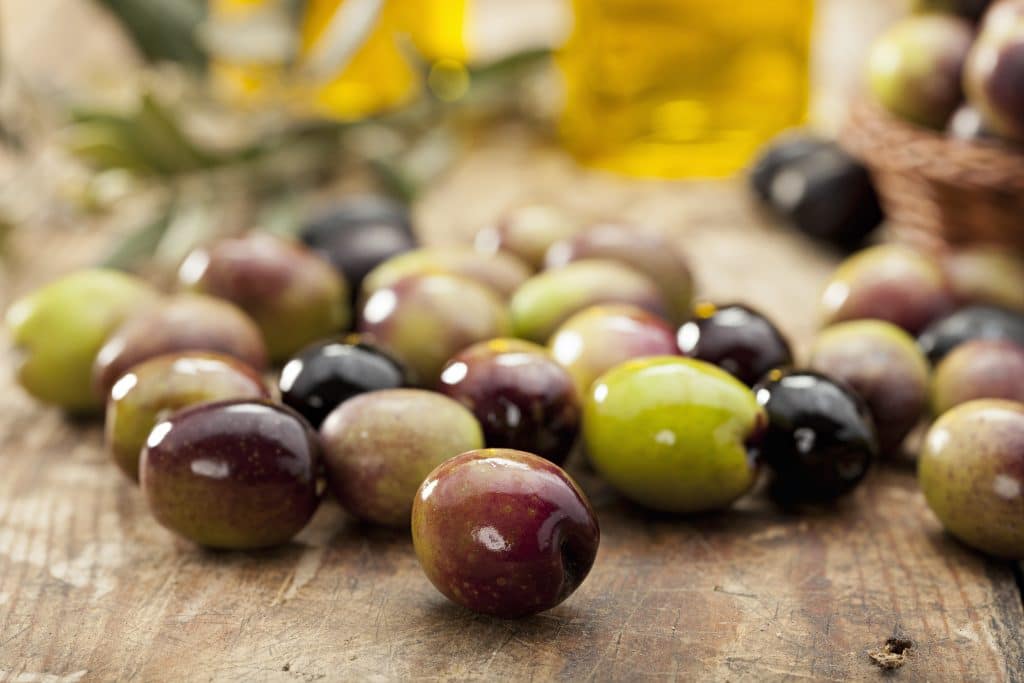

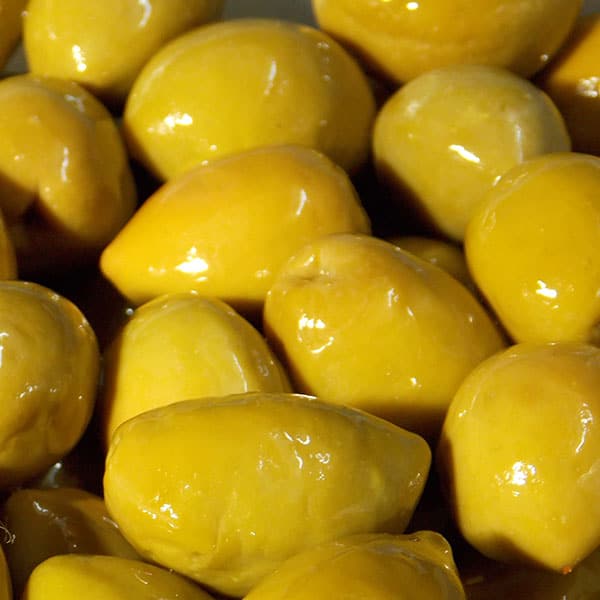
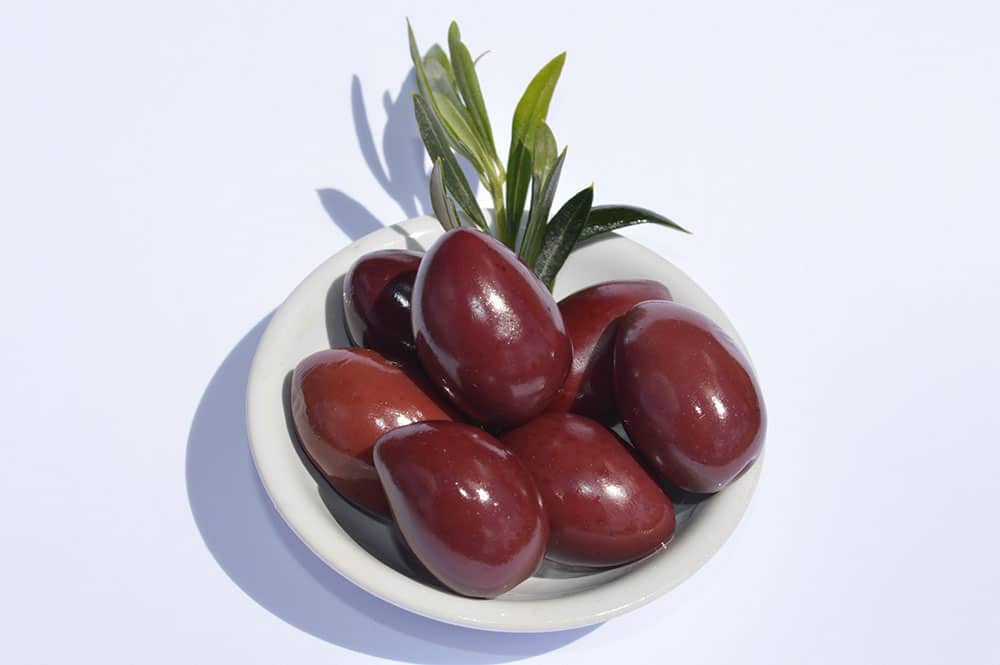
Organic AND probiotic!
All the olives we grow Are not only 100% Organic, but probiotic too.





